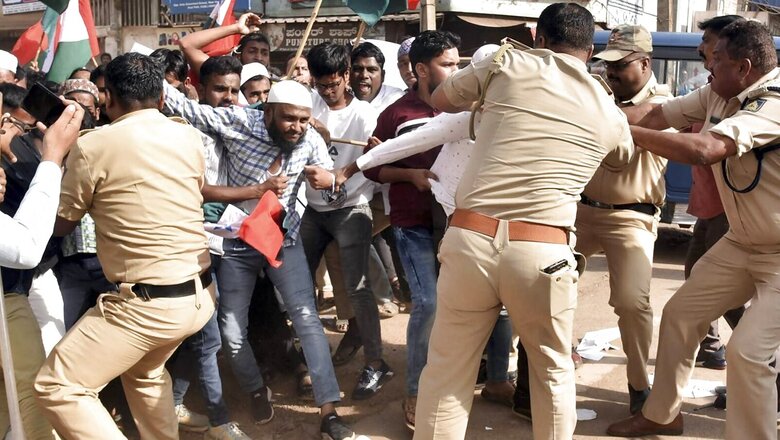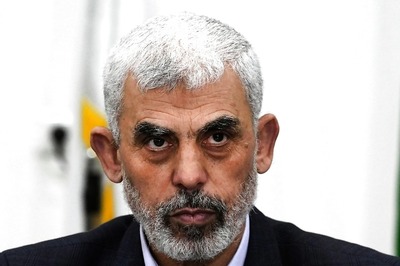
views
Last week, the Union Home Ministry, Government of India, banned the Islamist organisation, Popular Front of India (PFI). While the PFI’s anti-India role has been widely discussed, little attention has been given on how it raised foreign funding for activities expressly prohibited by the Foreign Contribution Regulation Act, 2010 and how it circumvented FCRA with the loopholes in the Act.
As reported by India Today, in its article dated June 2, 2022, titled “Popular Front allegedly raised funds from China, links to Hathras and Delhi riots emerge”, it has come to the notice of investigating agencies that PFI was getting foreign funding from various Chinese sources. This funding was under the guise of trading and commercial transactions between members and office bearers of PFI and its affiliated organisations and Chinese companies.
The FCRA, enforced by the Ministry of Home Affairs (MHA), regulates the inflow of foreign contributions or aid into the country. The intention behind the Act was to prevent foreign organisations from influencing social, political, economic, and/or religious discussions in the country. For that purpose, the Act prohibits NGOs from accepting any foreign contribution. Thereby foreign contribution is not allowed in activities like political activism, proselytism, and advocacy.
To circumvent this restriction, a foreign donor enters into a commercial transaction with the key official of the NGO or his associates or family and friends. This loophole is possible due to Explanation 3 of Section 2(1)(h) of the Act. Section 2(1)(h) defines the term “foreign contribution” as “the donation, delivery or transfer made by any foreign source”. However, Explanation 3 states that “Any amount received, by any person from any foreign source in India, by way of fee (including fees charged by an educational institution in India from foreign student) or towards cost in lieu of goods or services rendered by such person in the ordinary course of his business, trade or commerce whether within India or outside India or any contribution received from an agent of a foreign source towards such fee or cost shall be excluded from the definition of foreign contribution within the meaning of this clause”.
In other words, this means that any money received from foreign sources in the account of a key official of the NGO or his associates or family and friends and then transferred in the account of the NGO in India is not regarded as foreign funding. This explanation is misused by many NGOs to get foreign contributions from foreign sources for all prohibited and proscribed activities.
This commercial transaction is in the nature of exports of goods or services or a speaking assignment. The foreign donor pays money to that individual. This payment is subject to direct and indirect taxes and deduction of tax at source in both the countries. The individual, who is the recipient of foreign funds, then donates the money to the NGO. This way the NGO receives funds from an Indian donor and that too from his / her individual account located in India and again very importantly in Indian rupees, instead of foreign currency. This is how FCRA restrictions are circumvented. This is especially done in cases where end use of funds is for advocacy.
This process is efficiently implemented in the case of PFI, which received money from China through this route. The Enforcement Directorate (ED) unearthed the Chinese link in funds received by PFI. A PFI member and national general secretary of Campus Front of India (CFI), KA Rauf Sherif, received more than Rs 1 crore from China. This was masked as trading activities between KA Rauf Sherif and the Chinese party. Later, KA Rauf Sherif transferred this money from his own bank account into the account of PFI. Thus PFI got Chinese money for political activism in the country via its office bearer KA Rauf Sherif.
Similarly, PFI’s political front Social Democratic Party of India (SDPI) official Kaleem Pasha received Rs 5 lakh from Chinese controlled Indian company, Jumpmonkey Promotions India Pvt Ltd. This money was used for purposes of PFI. In other words, foreign funds were given to office bearers and members of PFI, instead of directly giving it to PFI, and that foreign money was used for political and other activities.
It is understood that the ED analysed bank accounts of more than 600 domestic contributors of PFI and checked bank accounts of more than 2,600 beneficiaries. In this investigation, they found that many of these bank accounts were bogus and during the physical verification on the ground it was found that there were no real people. This, in other words, means that fictitious persons were created and bank accounts were opened in their names. The bank accounts of these fictitious persons were used to receive monies from overseas, which was subsequently transferred into the bank account of PFI.
This technique is simple to manage. There is no secret that PFI has many sympathisers and supporters outside India. They are Indians who are working in the Middle East and other places. Foreign sources (Chinese in this case, and maybe many others like Al Qaeda and Turkish supporters of Al Qaeda — IIH) can transfer money in the accounts of overseas supporters of PFI. They would then transfer small amounts in these fictitious accounts in India.
This is how PFI has used all loopholes to mask its foreign funding and later used that money for various anti-India activities, which includes Bangalore and Delhi riots, funding the Shaheen Bagh blockade, instigating riots in the aftermath of Hathras, etc. It is also pertinent to note that foreign funding is not allowed for proselytism, and here foreign-funded PFI has used its resources to defend the conversion of Akhila Ashokan into Islam way up to the Supreme Court.
Sumeet Mehta is a Chartered Accountant by qualification and a Corporate Finance professional. He is the author of ‘Diagnosing GST for Doctors’, published by CNBC Books18. He tweets from @sumeetnmehta. The views expressed in this article are those of the author and do not represent the stand of this publication.
Read all the Latest Opinion News and Breaking News here


















Comments
0 comment